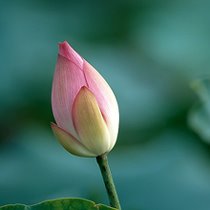 “What if monks fall in love? They just stop being monks?” wrote one student on the exit survey after attending a talk by Master Jian Dan.
“What if monks fall in love? They just stop being monks?” wrote one student on the exit survey after attending a talk by Master Jian Dan.This afternoon, Master Jian Dan was invited by Ms. Sabrina Marsh to give a talk to her undergraduate “Community Education” class at University of Houston. The class is offered by College of Education, with the goal to expose pre-service teachers to different cultures, experiences and paradigms
 In today’s talk, Master Jian Dan shared his personal experiences living in American as a Buddhist monk. He talked about the common misconception linking Buddhist monks to Kong-Fu masters, and his encounters of cultural conflicts or misunderstandings between the East and the West. Master called the differences “internal versus external.” He used three examples to illustrate the point, chopsticks vs forks, mental math vs calculator, and Gong-fu vs weapons. From this “internal versus external,” Master concluded the talk by making the connection to meditation. He explained the training of internal mind as the path to true happiness.
In today’s talk, Master Jian Dan shared his personal experiences living in American as a Buddhist monk. He talked about the common misconception linking Buddhist monks to Kong-Fu masters, and his encounters of cultural conflicts or misunderstandings between the East and the West. Master called the differences “internal versus external.” He used three examples to illustrate the point, chopsticks vs forks, mental math vs calculator, and Gong-fu vs weapons. From this “internal versus external,” Master concluded the talk by making the connection to meditation. He explained the training of internal mind as the path to true happiness.After the talk, students had the chance to ask questions. Questions ranged from if he can have family and kids, if becoming a monk was a self choice, whether he plans to stay in America or go back to Taiwan, are there female monks, can a person be both Christian and Buddhist, what are some of the Buddhist holidays, to what is karma.
 Meditation
MeditationImmediately after the Q&A, Master gave the students some brief mediation instructions and the group meditated for five minutes. Several participants stated at the exit survey that meditation was the most interesting part of what they learned today. Exit survey also asked students to reflect on their meditation experience today:
“I have never meditated before. It was fine but I wish we had more time”
“I loved it”
“before my thoughts keep distracting me, but today I was able to dismiss my thoughts”
“I liked it because I did not understand how to do it [before]”
“hard”
“my back hurt”
“I have never meditated before and I found this experience very relaxing. I especially like that it is a new skill that I can use to lessen anxiety”
“it really made me feel relaxed and calm”
‘I have always wanted to try meditation and learn some techniques and I thought it was great”
“today’s meditation was good, a little hard on my legs due to inflexibility”
 Exit survey – most interesting
Exit survey – most interestingSeveral quotes from the survey showcased the variety of students’ reaction to this talk. When asked “what was the most interesting thing you learned today?” students answered:
“about the attachments in your life and mind…”
“internal vs external, difference in east & west cultures”
“that we are capable of controlling our mind. I cannot even control my emotions. I find it very interesting”
“about reincarnation”
“that in Buddhism you do not attach to anything and do not live for the future. I thought it was interesting because I spend most of my energy worrying about the future”
“the perspective of American culture from someone else’s perspective because it is easy to take our every day lives for granted and it’s interesting to see how other cultures view us”
“that to be a monk you see everyone as being your parent though the concept of reincarnation”
“about the difference between west and east… never looked at it that way”
Exit survey – further questions
Exit survey also indicated that many students still had more questions they like to explore. Questions such as “philosophy and life that a Buddhist has” “Buddhism” “What Buddha represents” “reincarnation,” and more. One student asked “What if monks fall in love? They just stop being monks?” Well, I guess we just have to find out the answer next time!


 Click to see more Class 8 pictures
Click to see more Class 8 pictures

 click to see more class 7 pictures
click to see more class 7 pictures

